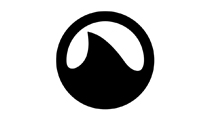This website uses cookies so that we can provide you with the best user experience possible. Cookie information is stored in your browser and performs functions such as recognising you when you return to our website and helping our team to understand which sections of the website you find most interesting and useful.
Business News Digital Grooveshark Timeline Legal
RIAA wins big damages from anonymous Grooveshark cloner
By Chris Cooke | Published on Tuesday 15 December 2015

Further proof that anti-piracy litigation is much more speedy these days, though even this didn’t go through the motions quite as quickly as the US record industry’s recent legal assault on the short-lived streaming app Aurous.
Nevertheless, the Recording Industry Association Of America has scored another court win in its battle against the Grooveshark clone, the unlicensed music service that popped up shortly after the original Grooveshark was finally forced offline, replicating the original’s look and feel, and using its name.
As previously reported, the people behind the original Grooveshark finally threw in the towel back in May after years fighting off litigation from the record companies which argued the streaming service infringed copyright. The clone version, which claimed to be a restoration of the deleted streaming set-up, appeared online almost immediately.
The RIAA quickly went legal, securing an injunction ordering various domain and internet companies to not provide services to the new copyright infringing site. And in the main, the injunction was successful, with the Grooveshark clone moving around the internet for a while before pretty much disappearing.
The person behind the clone, although initially quite vocal online about their project, never responded to the legal action. On the back of that, the RIAA returned to court to request a default judgement in its favour ruling that the Grooveshark clone definitely infringed copyright, while also seeking an injunction to ban any future incarnations of the site and damages for the infringement it enabled in the few weeks it was online.
The court duly complied, with the resulting judgement stating: “Defendants have engaged in willful copyright infringement of plaintiffs’ copyrights through the counterfeit service, which allows users to download and stream infringing copies of plaintiffs’ copyrighted sound recordings directly from servers operated or controlled by defendants, in violation of plaintiffs’ copyrights”.
In terms of damages, the judge fully utilised the always fun provisions in US law and awarded the labels the top available damages for each of the 89 specific tracks the RIAA said had been infringed, which is 89 x $150,000, so over $13 million in total. The judge then added $4 million to be bill because the defendant used the Grooveshark trademarks without permission. These had been handed to the RIAA as part of its settlement with the original Grooveshark company.
Of course, because the person behind the Grooveshark clone only ever spoke anonymously, and never responded to the legal action, their identity remains unknown, making these theoretical rather than actual damages.
Still, it further demonstrates that the US record industry is now in a position to pursue speedy litigation against new piracy set-ups almost as soon as they go live. Though, obviously, it can’t do that to every new piracy venture that appears online, so it’s those that generate a lot of hype at launch that are likely to be the targets.
But the record industry will nevertheless hope that that may still be a deterrent to some of the geeks planning new online ventures that utilise or link to unlicensed music content. We’ll see, I guess.





